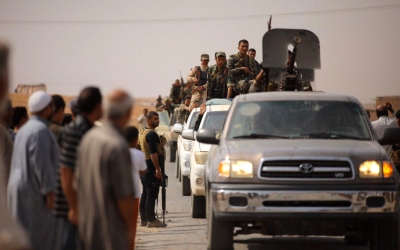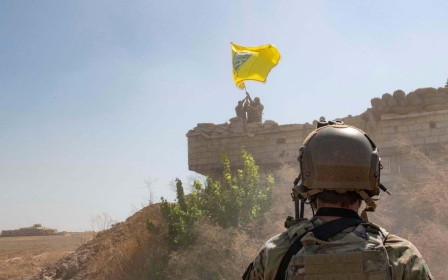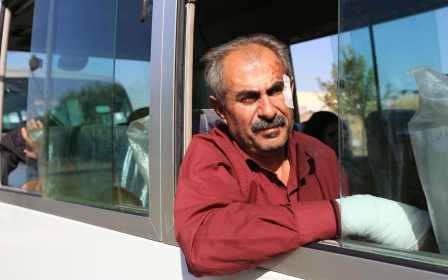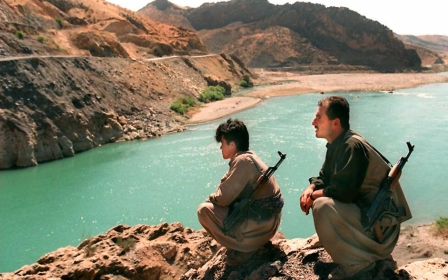Kurds suspend fight against Islamic State as Syrian forces enter Kobane
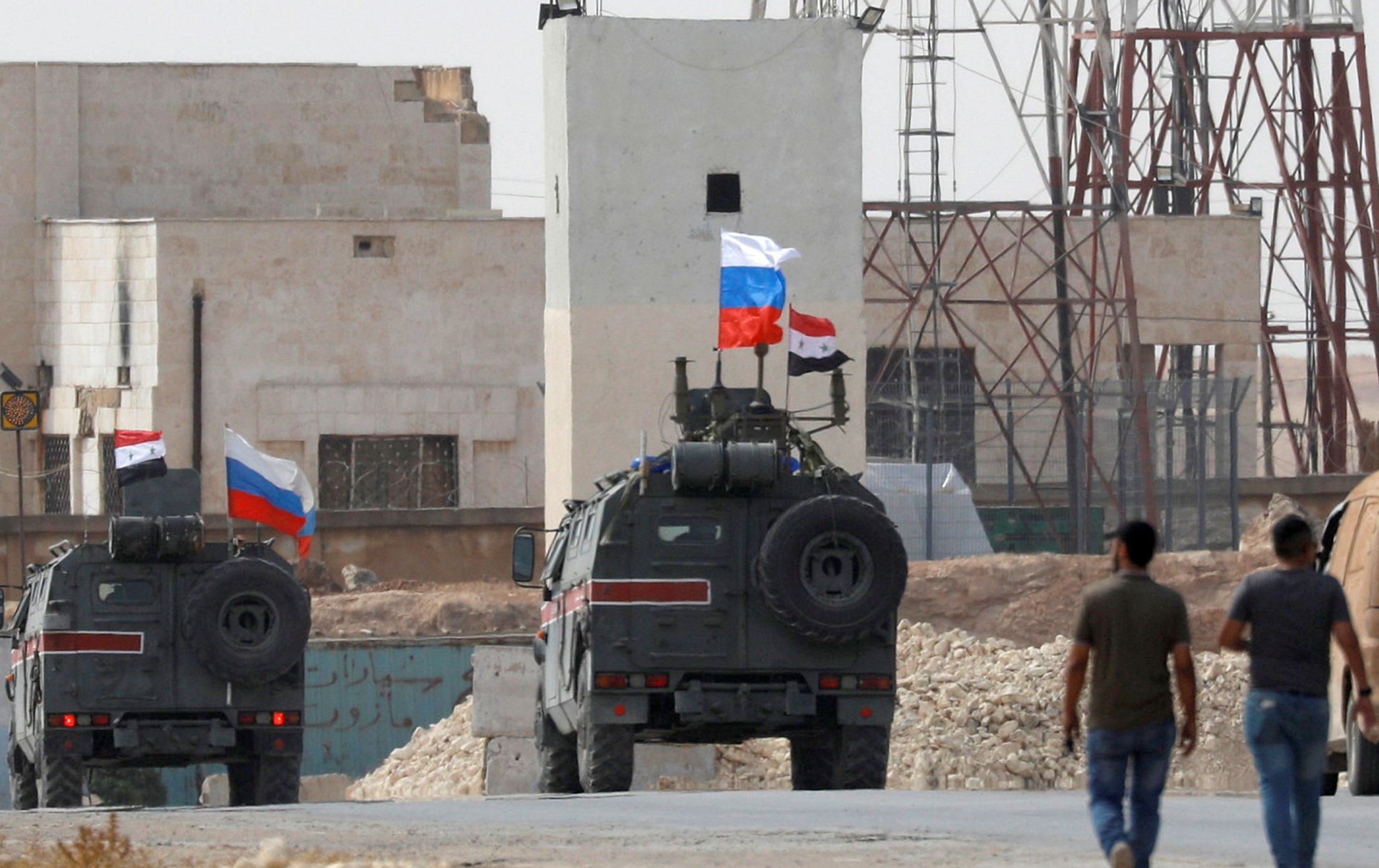
Kurdish forces in Syria announced the suspension of operations against the Islamic State (IS) group, as Syrian and Russian troops provided support against the Turkish invasion by entering the key border town of Kobane.
The head of the Kurdish-led Syrian Democratic Forces (SDF), Mazloum Abdi, said on Wednesday that the SDF was "freezing" operations against IS, according to the AFP news agency.
"We have frozen all our actions against Daesh," Abdi told Kurdish television channel Ronahi, using an Arabic acronym for IS.
The announcement comes as the SDF hammers out the details of the partnership with Russian and Syrian government forces, which have begun fighting alongside them against Turkey's military offensive in northern Syria.
As part of that partnership, earlier on Wednesday Syrian and Russian troops entered the key border town of Kobane.
New MEE newsletter: Jerusalem Dispatch
Sign up to get the latest insights and analysis on Israel-Palestine, alongside Turkey Unpacked and other MEE newsletters
"Syrian regime and Russian troops have entered the town of Kobane," the Syrian Observatory for Human Rights, a London-based group that monitors the conflict, said.
Kobane, known as Ain al-Arab in Arabic, is a highly symbolic town for Syria's Kurds, whose forces - backed by a US-led coalition - recaptured the town from IS in a fierce battle in 2015.
Since then, Kobane has been under the control of the Kurdish People's Protection Units (YPG), which lead the US-backed umbrella group, the SDF.
Earlier this month, US President Donald Trump announced a troop withdrawal from northern Syria, raising the ire of US lawmakers and officials who accused the White House of betraying Washington's Kurdish allies.
The US pullout allowed Turkey to launch a military offensive on 9 October. Ankara considers Kurdish fighters in northern Syria a threat to its national security.
In a bid to defend themselves after the US withdrawal, Syrian Kurds struck a deal with President Bashar al-Assad, allowing pro-government forces to deploy in Kurdish-held territory.
Russian forces allied to Assad have also stepped in, patrolling areas in the northeast to prevent clashes between Turkish-backed forces and Syrian government troops.
US seeks negotiations
US Vice President Mike Pence revealed on Monday that Trump spoke on the phone with a top Syrian Kurdish general, who voiced concerns over Turkish forces approaching the city of Kobane.
While the Trump administration initially seemed to support the Turkish offensive, following severe bipartisan backlash it announced sanctions against Turkey in retaliation for its military advance.
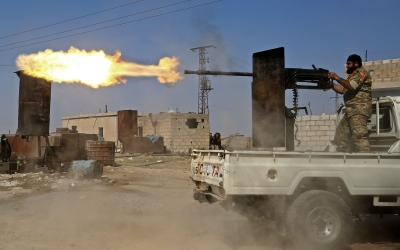
Since then, the Trump administration has urged Turkey to call an immediate ceasefire in Syria and work towards a negotiated settlement with the Kurdish-led SDF.
US Vice President Mike Pence is set to meet with Turkish President Recep Tayyip Erdogan in Turkey on Thursday to talk about possible negotiations.
Still, Erdogan earlier vowed that Turkey's operation would continue.
The only way to solve Syria's problems, Erdogan told the Turkish parliament, is for the Kurdish forces to "lay down their arms... destroy all their traps and get out of the safe zone that we have designated," AFP reported.
Later on Wednesday, Erdogan said he planned to meet Russian leader Vladimir Putin on 22 October, without providing further details.
An official from the Kurdish-led SDF said that its forces had no intentions of backing down, as it seeks support from Russia and the Syrian government.
"We are fully prepared to wage battles," the SDF official told AFP. "The real battle has yet to start."
Middle East Eye delivers independent and unrivalled coverage and analysis of the Middle East, North Africa and beyond. To learn more about republishing this content and the associated fees, please fill out this form. More about MEE can be found here.


